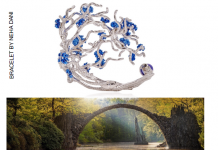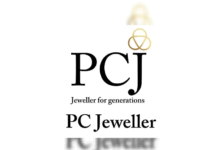As the countries of the G7 come together to discuss new import measures designed to prevent the flow of Russian diamonds through their borders, De Beers Group CEO, Al Cook, has published an open letter to the G7 outlining the company’s steadfast commitment to its objectives. Cook shares De Beers’ perspective on this important topic and its support for creating an effective framework.
A copy of the letter is reproduced below.
Dear leaders of the Group of Seven,
As the world’s leading producer of diamonds, De Beers fully and unequivocally supports the objectives of the G7 countries to prohibit diamonds of Russian origin from entering their borders.
We are grateful for the opportunity that you have given us and the diamond industry to engage with you regarding the framework of import requirements for diamonds.
By definition, a framework designed to identify diamonds from Russia must be able to identify and trace all diamonds.
Since the prospect of new import restrictions was first announced by the G7 earlier this year, De Beers has worked with government and industry stakeholders to identify effective and practical industry-wide solutions to meet this objective. Throughout our discussions two things have been clear: why we should do this is easy, but how we should do it is hard.
Several proposals have been developed to achieve the G7 objectives. In order to shape a framework that works, we believe it must be collaborative, coherent and collective.
Collaborative
To ensure that it can be effectively implemented, any framework that applies to the entire industry must be developed with input from across the industry. While some of the diamond industry sits within the G7, much of it sits outside of it. We urge the G7 to engage with governments and industry in key producer countries such as Botswana, Namibia, South Africa and Angola and in key cutting centres such as India.
Coherent
Any framework must be workable and must avoid damaging diamond exports from producing countries outside Russia. In particular, any import framework must protect the jobs, businesses and livelihoods that sustain the economies of diamond-producing African countries. Further, we must be realistic about the current capabilities of technology-based solutions. De Beers has developed the world ‘s leading diamonds blockchain, Tracr, but even we recognise that no single technology-based platform is capable today of meeting the G7 requirements. In the near-term, technology can support a framework, but it cannot be the framework.
Collective
Any framework must be inclusive for all members of the industry. If an effective framework is one that identifies and traces all diamonds, then it must be as accessible to the artisanal sector in Africa, small enterprises in India, and independent jewellers in America as it is to De Beers and our partners. There must be multiple government diamond offices, in trusted countries, for the certification of rough diamonds to avoid debilitating and restrictive bottlenecks.
Any solution that leaves parts of our industry behind threatens the integrity of that framework.
We in De Beers recognise that governments, not companies, set legislation. But we believe that responsible companies like ours can ensure that that such legislation is effective. In pursuit of a collaborative, coherent and collective solution that supports the aims of the G7, we have joined with 22 diamond industry organisations through the World Diamond Council to progress the ‘G7 Diamond Protocol’ proposal.
We look forward to further engagement with the G7 around the World Diamond Council proposal and urge those that have submitted proposals to work together to create an effective and practical solution. Ultimately, enhanced provenance requirements will make us stronger as an industry and better positioned to meet consumer expectations.
Disclaimer: This information has been collected through secondary research and TJM Media Pvt Ltd. is not responsible for any errors in the same.




























